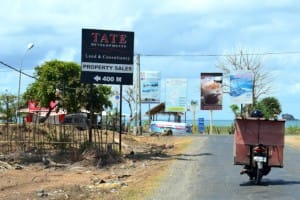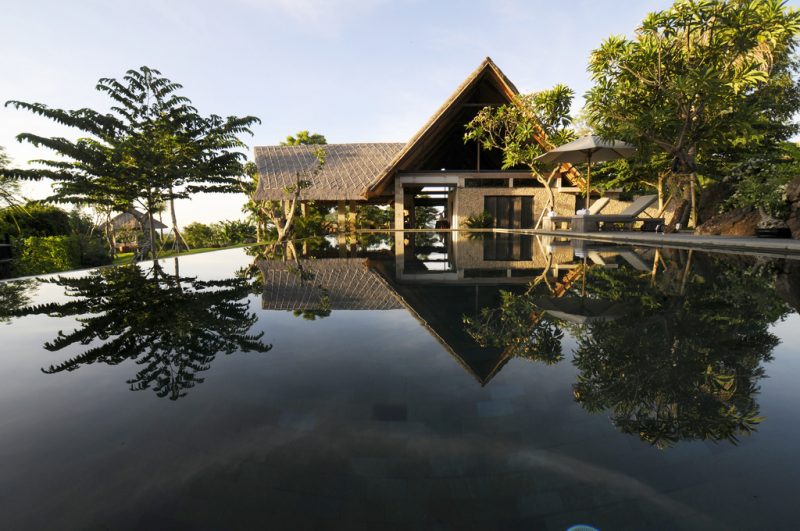The government says it will survey and inventory all land that could be owned by foreigners. The issue raises eyebrows and pulses, primarily in Bali and Lombok.
Foreign ownership of property in Indonesia has recently come under increased scrutiny, with the head of the National Land Agency (BPN) and minister of Agrarian Affairs Ferry Mursyidan Baldan clamping down on the issue. The focus is on land illegally owned by foreigners throughout the archipelago, in particular on the resort islands of Bali and Lombok. Reports suggest that the BPN will soon begin to survey and inventory land ‘owned’ by foreigners in Indonesia.
At present, foreigners are able to legally secure land by way of a long-term lease. This can be under their company name using Hak Guna Bangunan (Building Rights Title) or personally using Hak Pakai (Right of Use). With the latter, the foreigner must be domiciled in Indonesia, and as such is rather limited from an investment standpoint. Outside of these two lease options, many foreigners have chosen the popular nominee method to purchase property and thus are able to ‘own’ land through an arrangement with an Indonesian citizen.
“It is absolutely not allowed for [a] foreigner to own a single inch of land in Indonesia. This is as stipulated by the National Constitution,” the minister told reporters in early March. He went on to highlight that the survey and inventorying of land ‘owned’ by foreigners must be conducted to verify that there is no land in Indonesia controlled by outsiders. Much of this stems from what Baldan views as the widespread use of Indonesian nominees to acquire land.
What does this mean for expats who do own property via a nominee?
For expatriates who have purchased property through an Indonesian nominee, these surveys may leave them exposed to a possible change in ownership if the BPN is to follow through with its plan. When asked what sanctions would be placed on those found to illegally own land, Baldan replied:
“There’s no need for sanctions, we will just divert possession of the land. We will ask if he has an Indonesian wife and divert the land to her. But, if he doesn’t have an Indonesian wife, then the land will be taken by the state.”
How to prove foreign ownership?
The BPN says that the survey of ownership will be done in such a way as to avoid creating an uproar. “[They] are inventorying, not conducting raids. So there is no need for anyone worrying or being frightened,” said Baldan. The oversimplification of this process by the minister begs the question among inevitably worried foreigners as to how—if at all—the government can prove the land is indeed owned illegally?
Daniel Sunyoto, vice president of the Association of Real Estate Brokers Indonesia (AREBI) in East Java thinks that finding proof would be both difficult and impractical for the BPN. He explains that from a government perspective, however proving illegal ownership can indeed be done. “The tax report from the sale of the land, especially if the nominee is a low-income employee, whose salary wouldn’t be able to make the purchase,” says Sunyoto, highlighting one possible method.
Sunyoto added that the BPN also has the option of going through the original notary in order to see if there is a Power of Attorney agreement linked to the purchase of the land that binds a nominee to a foreigner. It is worth noting, however, that the notary is not obligated to report any such agreement at the time it is drafted.
As for the BPN’s claims that land could be seized by the state, Sunyoto thinks that it would be hard for the government to have enough legal ground to seize the land in most cases. He adds that ownership would most often default back to the nominee. For this reason, Sunyoto recommends purchasing property under your own name using Hak Pakai in order to eliminate the need for a nominee.
Will business in Bali change?
Patrick Strei, an expatriate who has lived in Indonesia for more than 20 years weighed in on the topic. “These changes [from the Indonesian government] are making the country less attractive to foreign investors,” he says. Strei speculates that many expats have in fact contributed significantly to the property boom in Bali. “There are other countries in the region like Malaysia and the Philippines where it is far easier to buy property and where the laws protect the rights of foreign ownership,” he says, comparing the archipelago to its neighbouring countries.
Strei is not in favour of purchasing property using Hak Pakai, as it is a lease agreement and he would be limited to one title.
He says that the government’s recent stance on foreign employees in Indonesia, coupled with further restrictions on property ownership, is systematically making Indonesia less desirable to foreigners.
Terje Nilsen, principal of Ray White Paradise in Bali, explains the recent announcements have indeed triggered a bit of stress among foreign owners. However, he says, “Most probably, into the future the government will continue to expose their opinions on this and at the same time make it easier for foreigners to invest in Bali in a proper way.”
What does this mean for the future?
“The nominee issue will, over the next couple of years, have a sunset policy,” says Nilsen. “After all, what the government wants is to collect proper tax revenues from this group of investors.”
Looking ahead, it appears that Indonesia is trying to push foreign land ownership toward either Hak Pakai or having an Indonesian-incorporated company, leaving the nominee method only for foreign spouses. Many who chose the nominee method to begin with should have known that any government ruling would likely not be in their favour. Now, it seems there could be additional cause for concern. Whether the BPN will be able to carry out all its due diligence on the questionable use of nominees is another matter altogether.




